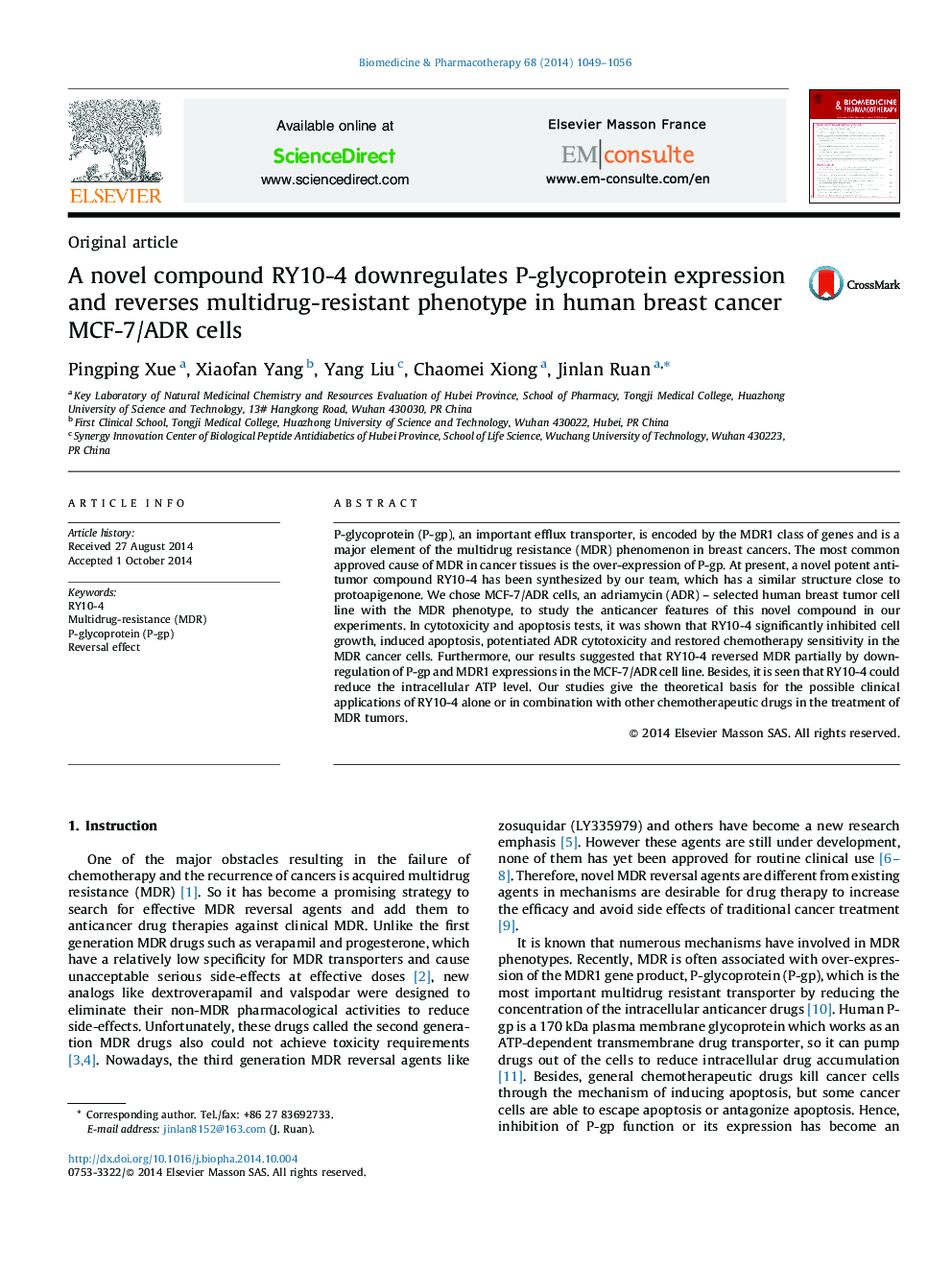| Article ID | Journal | Published Year | Pages | File Type |
|---|---|---|---|---|
| 2524266 | Biomedicine & Pharmacotherapy | 2014 | 8 Pages |
P-glycoprotein (P-gp), an important efflux transporter, is encoded by the MDR1 class of genes and is a major element of the multidrug resistance (MDR) phenomenon in breast cancers. The most common approved cause of MDR in cancer tissues is the over-expression of P-gp. At present, a novel potent anti-tumor compound RY10-4 has been synthesized by our team, which has a similar structure close to protoapigenone. We chose MCF-7/ADR cells, an adriamycin (ADR) – selected human breast tumor cell line with the MDR phenotype, to study the anticancer features of this novel compound in our experiments. In cytotoxicity and apoptosis tests, it was shown that RY10-4 significantly inhibited cell growth, induced apoptosis, potentiated ADR cytotoxicity and restored chemotherapy sensitivity in the MDR cancer cells. Furthermore, our results suggested that RY10-4 reversed MDR partially by down-regulation of P-gp and MDR1 expressions in the MCF-7/ADR cell line. Besides, it is seen that RY10-4 could reduce the intracellular ATP level. Our studies give the theoretical basis for the possible clinical applications of RY10-4 alone or in combination with other chemotherapeutic drugs in the treatment of MDR tumors.
